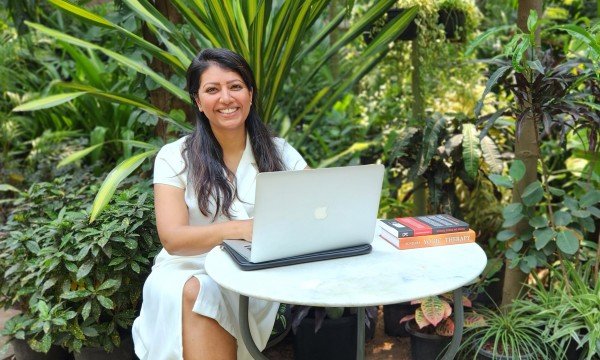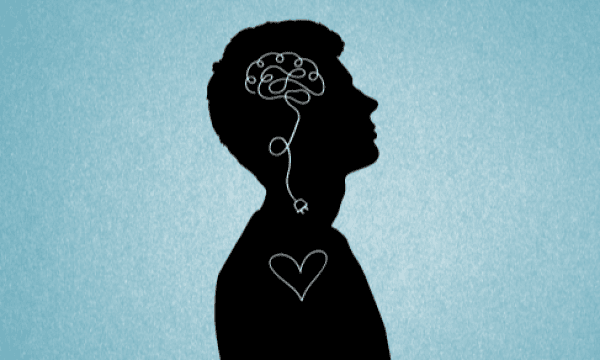
Last month I attended Radiant Night 2013, an annual fundraiser organized by South Asian Autism Awareness Centre (SAAAC), an organization that helps more than 100 kids with autism and their families. Autism is a mental condition characterized by greater difficulty in communicating and forming relationships; it persists throughout an individual’s lifetime. However, there has not yet been a clearly identified cause or cure for this disorder, some treatments have shown to help those impacted make significant progress. I ran into an active and intelligent young boy with autism and learned about the challenges of his behaviour at the fundraiser. He is currently receiving therapy and music lessons, both provided by SAAAC, to help with his social skills, behaviour and sensory issues. As I was listening to his performance at the fundraiser, I was able to relate to the challenges his family faces daily, based on some of the challenges I faced quite recently.
It was early in February 2012 when I had learned that my father had multiple personality disorder. He was so kind and caring and jolly during the day. However, his behaviour was aggressive during the night. I struggled to come to terms with the fact that he was experiencing such a mental disorder. It was one of the most mentally challenging situations I had ever faced. Being the eldest child, I was usually in a position to support my family to the extent I can. This time was different. I fell into a state of depression and hopelessness, but kept a smiling mask on at work, allowing very few people to know the pain I was feeling inside. I withdrew and isolated myself to be alone and in silence for a few days.
A week had gone by and it was getting really late, and I was feeling the worst I had ever felt. I was no longer in a position to help my father with his disorder, nor did I have the strength I had always managed to find in myself, to provide the moral support that my family needed of me during this time.
I remember feeling like the only way to make my life easier and simpler was to commit suicide, and this thought stayed with me the night things got really hard. Sitting at the end of my bed, my eyes became so tired from being spent on tears as I contemplated this idea as so many thoughts ran through my mind. Luckily, my friends came over to visit since they were concerned about my mental health at the time. After having a discussion with them about the situation, they convinced me that suicide is not the way forward. I realized that such a decision doesn’t only impact the individual, but everyone around him or her, and I realized how selfish I was being at the time for thinking about taking the easy way out.
From that moment, I’ve had a change of heart and change in outlook on life. I learned that being part of a community is about admitting you are vulnerable and asking for the support of others when you need it most, and ultimately leaning on them to be your source of strength when you encounter adversity. I also promised to myself that I’d strive to become a more positive thinker and do my part to move the community forward. I came to identify communities as groups of people, from all walks in life, who are able and willing to help individuals, particularly overcome adversity.
Though my story turned out well and my father’s health is now manageable, it could have easily been something very different. If I didn’t discuss my challenges with the community and seek their support, maybe I wouldn’t be here.
Many people do not have the same luxury or luck that I had. Most of the kids with autism come from low-income families. By low income, I mean families that have to spend more on food, clothing and shelter than the average family of similar size. The measure varies by family size and by the size of the community. The median, where there are many income levels below as above, after-tax income for families of two or more people amount to $65,500 in 2010 according to StatsCan. They look to us, the community, to elevate the lives of their children.
The essence of the human spirit touches on who we are and where we are going. When we stop exploring and pushing ourselves to new heights, we will begin to devolve. So here I am today, stoked and exhilarated about climbing Mont Blanc, the highest mountain in Europe. I am planning to make this adventure this June, all the while raising money to launch a music program for kids with autism. Our vision is to create an eight week musical training program during this summer, for kids with autism at SAAAC. This involves having one-on-one music sessions for these kids from July 8th – September 2nd. Thereafter, we will purchase tickets to a music concert (to be announced) for the kids and their families so that they can enjoy music to the degree most of us can and have the hope of leading a normal life.
Music has something that is unexplainable. It can raise our spirits, but more importantly, it can be an effective and positive treatment for kids with autism. Music therapy, as it is more commonly known, is currently making strides in the world of autism. Engaging with music allows kids with autism to express themselves in ways they may not be able to linguistically. A human health professor from New Zealand commented that music is an area that kids with autism tend to excel in and acknowledged that most of the kids have perfect pitch. If they have a special strength in music, why not use such strengths to help them? Being exposed to ‘calming’ music tends to have a tranquillizing effect upon kids with autism. We want to create such an effective musical experience that will maintain a climate for creativity and positive change for the kids in the musical training program.
To make this happen, we need to raise $2,500. We have raised over $1,000 in less than a week. All donations greater than $10 will receive an electronic tax receipt from the South Asian Autism Awareness Centre (SAAAC). 100% of the proceeds raised from this effort will be used to directly impact kids with autism and their families. The funds will be allocated equally in support of the music instruments and music concert tickets. I will work together with SAAAC this summer to oversee the program, investments, and share the success stories and challenges with all of you over the coming weeks.
So, how can you support kids with autism this summer?
1. Donate by clicking here (any amount helps).
2. Share this story with your peers via Facebook, Twitter, or e-mail.
3. Visit our blog or SAAAC's facebook page to track our progress.
Everyone matters in our community, including the kids with autism and their families. Thank you so much for reading my story and supporting the initiative to the extent you can.


























